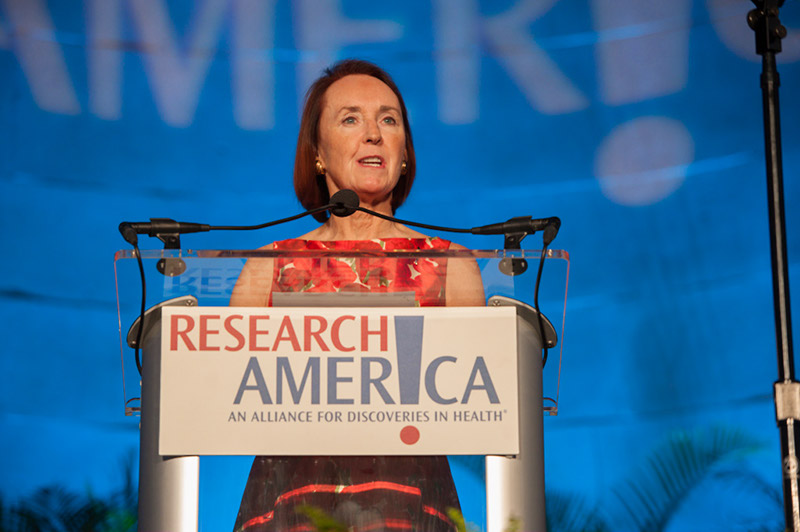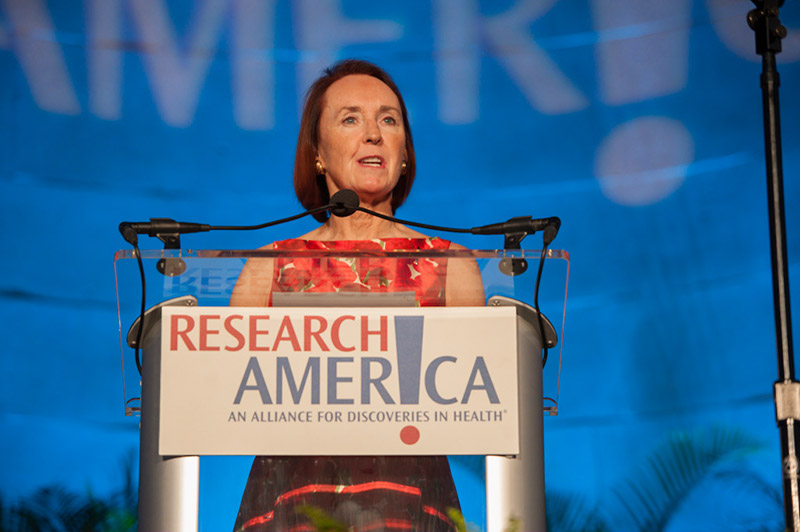Not Normal

 Dear Research Advocate,
Dear Research Advocate,
Omicron infection rates are rapidly decreasing, according to CDC data released yesterday. Even though infections and hospitalization are far from over and the U.S. death toll will reach 900,000 this weekend, media coverage is more and more about how we are moving to a somehow comfortable “new normal.”
Beyond the reality that we simply do not know what new COVID-19 variants are in the cards, the misconception that “endemic” = “no longer a problem” is unpacked in a recent Nature article. Consider that malaria and tuberculosis are endemic around the world, taking the lives of millions each year (read our new Malaria Fact Sheet). If COVID-19 indeed becomes endemic after two years, it will not be a signal to relax our guard; it will set the baseline against which to measure the priority our decision-makers assign to pandemic preparedness and to medical and public health progress going forward. We can and must do better.
This leads directly to advocacy: There is still time – albeit not much – to submit comments on the PREVENT Pandemics Act, released by Senate HELP Committee Chair Patty Murray (D-WA) and Ranking Member Richard Burr (R-NC). The deadline to share your feedback with the Committee is COB tomorrow, Friday. (Read our statement.)
There will be additional opportunities to engage, as well. If your organization is a Research!America member, register to join us on Thursday, February 24, at 1 p.m. ET for a roundtable discussion to brainstorm around short- and long-term pandemic preparedness advocacy priorities. If your organization is not a member, contact Anna Platt to learn about the benefits of membership.
Take Action Now: The federal government has now been flat funded for 125 days (the clock is ticking!) – it is essential that policymakers avoid a full year of flat funding, even if they need to pass another (very) short-term continuing resolution (CR) to achieve that goal. In a promising sign, the Chairs and Ranking Members of the House and Senate Appropriations Committees have reportedly met several times this week.
Use this editable email or one of the Tweets on our action page to urge members of Congress to avoid a year-long CR and pass a research funding-intensive FY22 spending package.
Action on Cancer: Yesterday, the White House launched its reignited Cancer Moonshot. There is now unprecedented promise – through immunology, gene editing, and other breakthroughs – for far faster progress on cancer prevention and treatment. Read our statement.
ARPA-H Hearing: The House E&C Subcommittee on Health will hold a hybrid (in-person and virtual) hearing, “ARPA-H: The Next Frontier of Biomedical Research,” on Tuesday, February 8, at 10:30 a.m. ET. The live webcast will be aired on the Committee website. Research!America Emeritus Board Member Keith Yamamoto is testifying. (We promise you: for that reason alone, it is worth tuning in to this hearing.)
February is Black History Month: This year’s national theme for Black History Month is Black Health and Wellness. If you are not familiar with Dr. Vivian Pinn’s extraordinary journey and indelible impact on the trajectory of women’s health (as well as on women and minorities in research and health equity), meet her, our honoree for the Outstanding Achievement in Public Health Award, generously supported by Johnson & Johnson (more on the Awards program below). NIH is sharing a variety of stories and hosting virtual events throughout the month of February on its Black History Month 2022 page.
On a related note: On February 1, NIH issued an RFI inviting comments on a “framework for the NIH-wide strategic plan for diversity, equity, inclusion, and accessibility.” Submissions are due by April 3, 2022.
Upcoming Special Discussion: Join us on Thursday, February 10, at 2:15 p.m. ET for a conversation with Neal F. Lane, PhD, one of our nation’s most influential and compelling leaders in science policy and advocacy, whose many distinctions include serving as the Director of NSF and as the Director of the Office of Science and Technology Policy. Early career scientist Victoria Schneider, PhD, will talk with Dr. Lane about his storied career, which continues at the prestigious Rice University Baker Institute for Public Policy, and the critical steps the U.S. can and must take to better leverage R&D against current and looming societal challenges.
Like Dr. Pinn, Dr. Lane will be honored at our 2022 Advocacy Awards; he will receive the Herbert Pardes Family Award for National Leadership in Advocacy for Research. Save the date: the Advocacy Awards will take place on March 16 at 4 p.m. ET.
Stay well, stay safe, and stay connected.
Mary Woolley




